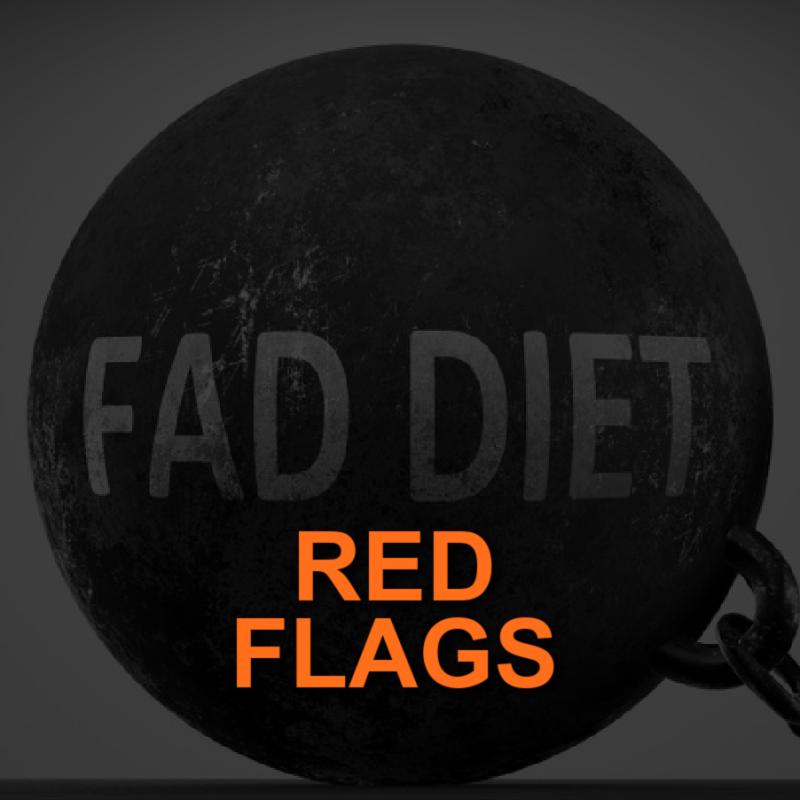
When new fitness clients think about the health and fitness industry, their thoughts are often clouded with their notion of weight loss, detox teas, secret potions, or fat-blasting supplements—basically, the elements of a fad diet. However, none of those are components of what the true health and fitness industry represents. Our industry and its legitimate professionals promote holistic wellness, better sleep quality, balanced eating, joyful movement, and realistic goal setting. We focus on the process of developing sustainable behavior change habits that lead to results. Our industry is not outcome-focused.
Unfortunately, many consumers are attracted to messages that promise results only (temporary ones at best) and not the lifestyle changes required to sustain any results achieved. As much as it is our job to teach clients about realistic goal setting and balanced behaviors, we also must teach them how to recognize trashy messages they may encounter regularly from “insta-influences” and companies/entities promoting a diet rather than a lifestyle.
Below are six common characteristics associated with fad diets and diet culture dogma. Help your clients recognize these characteristics so they can be more informed consumers.
Fad Diet Red Flags
Beware of Buzzwords. Fad diets love to hook consumers with catchphrases such as “detox”, “cleanse”, “whole foods”, “clean eating”, “elimination”, “willpower”, “results not typical”, and/or “no changes to exercise routine required”. The last one gets me every time – don’t make a change but get results…fast! This. Is. All. Rubbish.
Beyond the message that change isn’t required, the characterization of willpower as a virtue instead of a mind-body response is likely the most damaging. When a client uses willpower for an extended period of time (a lengthy restrictive diet, fasting, etc.), willpower will diminish because it is inherently limited. Given this fact, clients need strategies to conserve their willpower such as planning for moments of diminished self-control. Fad diets to do not make this clear to consumers.
Fast Results: This is also a buzz phrase, but it’s an unhealthy and unbalanced approach to a better lifestyle. Who doesn’t want a fast result? Especially in our contemporary world where immediate responses seem to be the priority and expectation. The reality is that fast weight loss is water weight, a fraction of muscle tissue, and only a tiny bit of fat. Many fad diets work quickly because they manipulate water weight by a combination of lowering carbs (so stored water is lost swiftly), cutting salt, and/or using some sort of diuretic agent. Weight loss on these diets is not fat loss.
Dichotomous Thinking: Fad diets are famous for their black and white thinking and the promotion of that type of mantra. For example, in most fad diet approaches foods are dumped into “good” and “bad” (assigning moral value to food sources). Some other diet approaches use a stoplight scale where foods that are “green” or “good” and foods that are “red” are bad. This is also not a helpful way to teach clients about balanced eating and food freedom. It creates an inherently restrictive mindset.
Before and After Photos. This is not to say that before and after photos aren’t motivating tools for some, but like workouts, there’s not a one-size-fits-most approach. Fad diet programs love to myopically define progress by a physical result and often neglect to point out the value in better sleep, changed energy levels, and/or mindset.
Food Group Elimination. Many fad diet styles enjoy demonizing one food group (most recently, it’s carbohydrates). These diets also claim that by eliminating a food group, you will lose weight. Well, duh, if you eliminate a food group, you eliminate a source of caloric intake, which creates a caloric deficit which can then lead to weight loss. It is not the food group that is the problem, it is the misrepresented reason why weight loss occurs.
Supplement Sales. Fad diets would not be fad diets if they did not eliminate something and attempt to add a substitute back in. Typically, this is accomplished by removing a food group or specific foods and then adding in a supplement – generally made of a proprietary blend (which is another buzzword for “no one knows what’s in it but the proprietor AND said proprietor does not have to disclose”).
Dietary supplements are meant to supplement (as opposed to replace) the diet in cases of a deficiency or malnutrition (or other medically indicated need). As a rule, dietitians and medical providers are the appropriate professionals to identify a supplement need and recommend it. As such, it is not within the scope of practice of the insta-influencer or common fad diet promoter.
Bonus: Weight Loss Focus. A bonus red flag is the limiting focus on weight loss (which clients need to understand is not the same as fat loss). Commonly, fad diet programs aim to encourage the consumer to weigh themselves each day and celebrate a reduction in that number. Weight is not a reliable indicator of progress, and it is limited in the story it can tell about a person’s health, fitness, or happiness.
Exercise professionals have a responsibility to train clients safely and effectively and in accordance with the clients’ goals. To keep clients safe, we also have a duty to educate our clients about the harmful messages nonscience influencers will attempt to sell them. Share these red flags with your clients and help them learn which messages to trust and which to trash.






